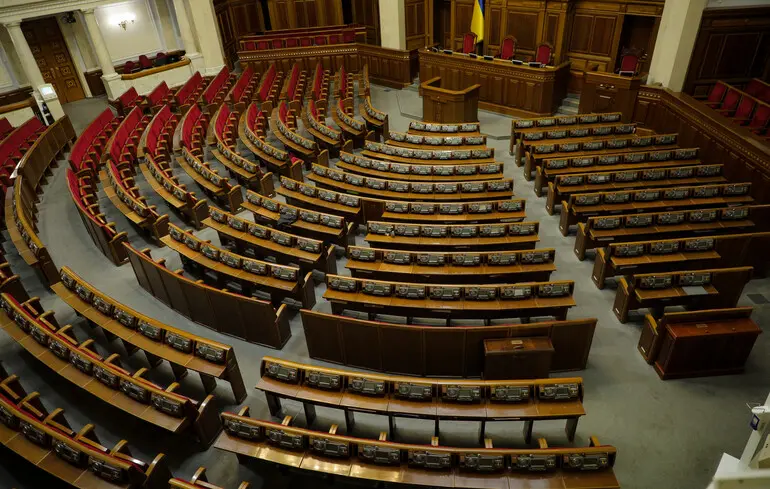Verkhovna Rada Approves Major Budget Increase: Kyiv Loses 8 Billion Hryvnias Amid Reallocation

The Verkhovna Rada of Ukraine has approved a significant revision of the national budget, aimed at markedly increasing funding for various sectors of the country’s operations.
In a vote supported by 229 deputies, parliamentarians endorsed a plan to redistribute financial resources to meet urgent national needs.
Notably, an additional 25.5 billion hryvnias will be allocated to the reserve fund, of which 8 billion may potentially be directed toward supporting the state railway company ‘Ukrzaliznytsia.’ According to Rostsolana Pidlasa, head of the Budget Committee, the increase in expenditures is balanced by cuts in other non-military expenses totaling 36.7 billion hryvnias, primarily reducing debt servicing costs by 33.6 billion hryvnias.
Furthermore, a portion of the corporate profit tax previously allocated to Kyiv’s city budget will now be redirected to the general fund of the national budget, adding another 8 billion hryvnias.
An additional 4.3 billion hryvnias are planned for the Ministry of Digital Transformation, with 1.4 billion allocated for acquiring specialized equipment, UAVs, and testing tools for combat conditions, while 2.8 billion will support grants for the development of defense technology.
The government also allocated 4.6 billion hryvnias for school meal programs in all regions and frontline areas for students from grades 1-11.
Significant funds—3.2 billion hryvnias—are designated for healthcare needs, including medicines for cancer patients, hepatitis, rare diseases, hemophilia, and other critical conditions.
Pidlasa highlighted that 1.5 billion hryvnias will support local budgets for establishing military lyceums that cultivate patriotic values among youth.
Support for war veterans remains a priority, with 1.2 billion hryvnias dedicated to cash aid, compensation, and social benefits.
The internal displaced persons (IDPs) will also receive targeted assistance: 1 billion hryvnias is designated for building or renovating housing for IDPs.
Authorities emphasize that these decisions are driven by the need to balance the budget amidst economic challenges and ongoing conflict, though critics argue they result in untransparent spending increases without clear assessments of efficiency.
Deputy chairman of the parliamentary committee, Yaroslav Zheleznyak, noted that despite promises by Prime Minister Julia Sviridenko to reduce costs and conduct audits, the reality reflects a budget expansion, raising concerns about transparency and accountability.

